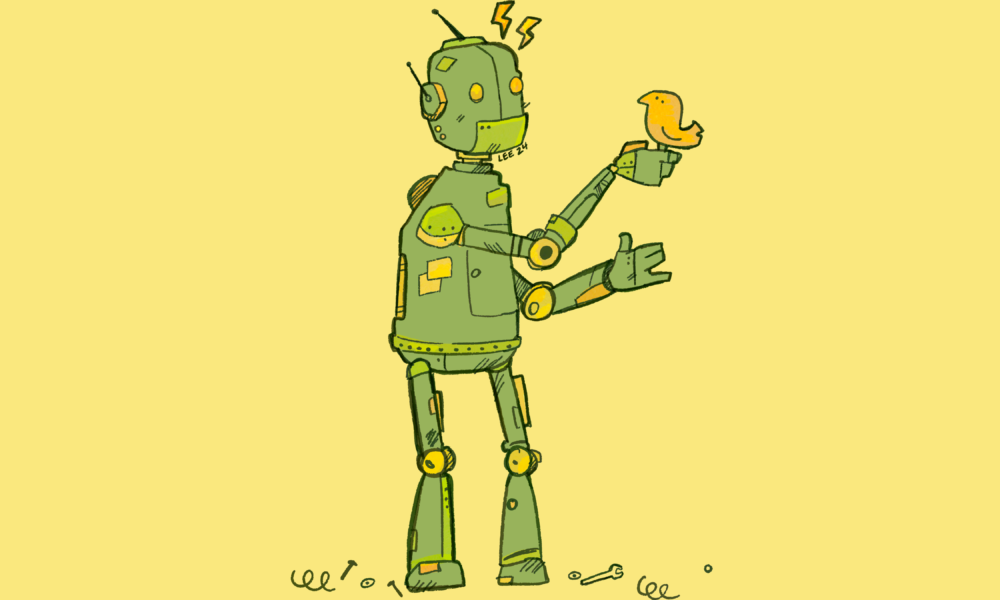McGill clubs are no strangers to design and innovation, with the Faculty of Engineering hosting countless engineering teams. From concrete canoes to rockets, students have many avenues to exercise their creativity. One such team, McGill Robotics, offers students the chance to translate their mechanical fantasies into reality.
McGill Robotics is composed of three subteams—the drone, Mars rover, and autonomous underwater vehicle (AUV) groups—and a university outreach program called ‘RoboHacks,’ a robotics competition where a group is given a time limit to craft their own robot.
In an interview with The Tribune, the Robotics team’s senior members explained the nuances of running an ensemble as multifaceted as theirs.
“We are building a hybrid VTOL (vertical take-off and landing) drone, so it can hover and also fly like a fixed-wing plane,” Emma Sinasac, U4 Mechanical Engineering and a project manager for the drone subteam, explained. “Our main competition goals are to fly to waypoints autonomously, find objects on the ground using computer vision, and drop a small payload on those objects.”
The drone design has been iterated on for two years, with their current drone—affectionately named Flappy—being sent to the Student Unmanned Aerial Systems Competition in June 2025.
The Mars rover group, co-headed by Tina Zhang, U3 Electrical Engineering, will also compete in the Canadian International Rover Competition. At the competition, Zhang explained that they will pick up payloads, perform “rescue missions,” and traverse certain terrain.
“Uniquely in the Mars Rover [subteam], we have a science division as well. We perform soil sample analyses to determine, depending on the [competition] year, signs of life or whether there have been kerosene spills,” Zhang said.
Zhang also said that their rover Galileo boasts one of the fastest drive systems amongst the competitors, and her team is still making speed-altering enhancements.
Like Zhang, Celina Belleville, U2 Mechanical Engineering and AUV project manager, is also no stranger to innovation. The AUV team’s Douglas vehicle was completely redesigned last school year in anticipation of the RoboSub competition.
“The competition itself takes place in a pool, and there’s a variety of different tasks,” Belleville explained. “Last year, we tried to achieve the buoy tasks, which [involved] identifying objects underwater and using [Douglas’] own software system to find, locate, and then travel to certain locations.”
Belleville also said that the AUV team is planning to incorporate torpedo and grabber systems for this year’s competition.
Despite each subteam having different goals, they emphasize collaboration across teams. Adrien Moulin, U4 Computer Science and a team captain, highlighted how interconnected their work is.
“Even if the projects all work for a very specific goal for their robot, we enforce some kind of standardization,” Moulin said. “When we do a design review, or even just through the daily work sessions, people share a lot of knowledge.”
Martin Paiva, U3 Electrical Engineering and one of the team captains, further explained why continuous advancement is one of their leading philosophies.
“The whole point of a design team is to teach new students things we’d never see in class. If we build the same robot every year over and over again, no one would learn anything,” Paiva said.
Above all, enthusiasm trumps all aspects when it comes to the Robotics team.
“One of the team mantras is ‘Team Before Machine,’” Moulin stated. “It’s the idea that when you join the team, you’re not just adding a line to your CV—you’re going to get trained and learn something, and the team is going to be there for you to bring your knowledge. That’s why everyone can join, as long as they’re willing to learn.”
McGill Robotics believes their focus on ‘team before machine’ is one of the group’s selling points to newcomers.
“You’re not just joining a team, you’re not only going to discover robotics, you’re going to make friends, and that is what we want to encourage,” Paiva said.









